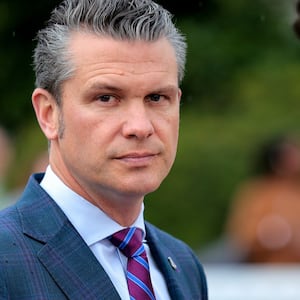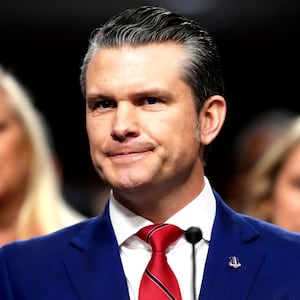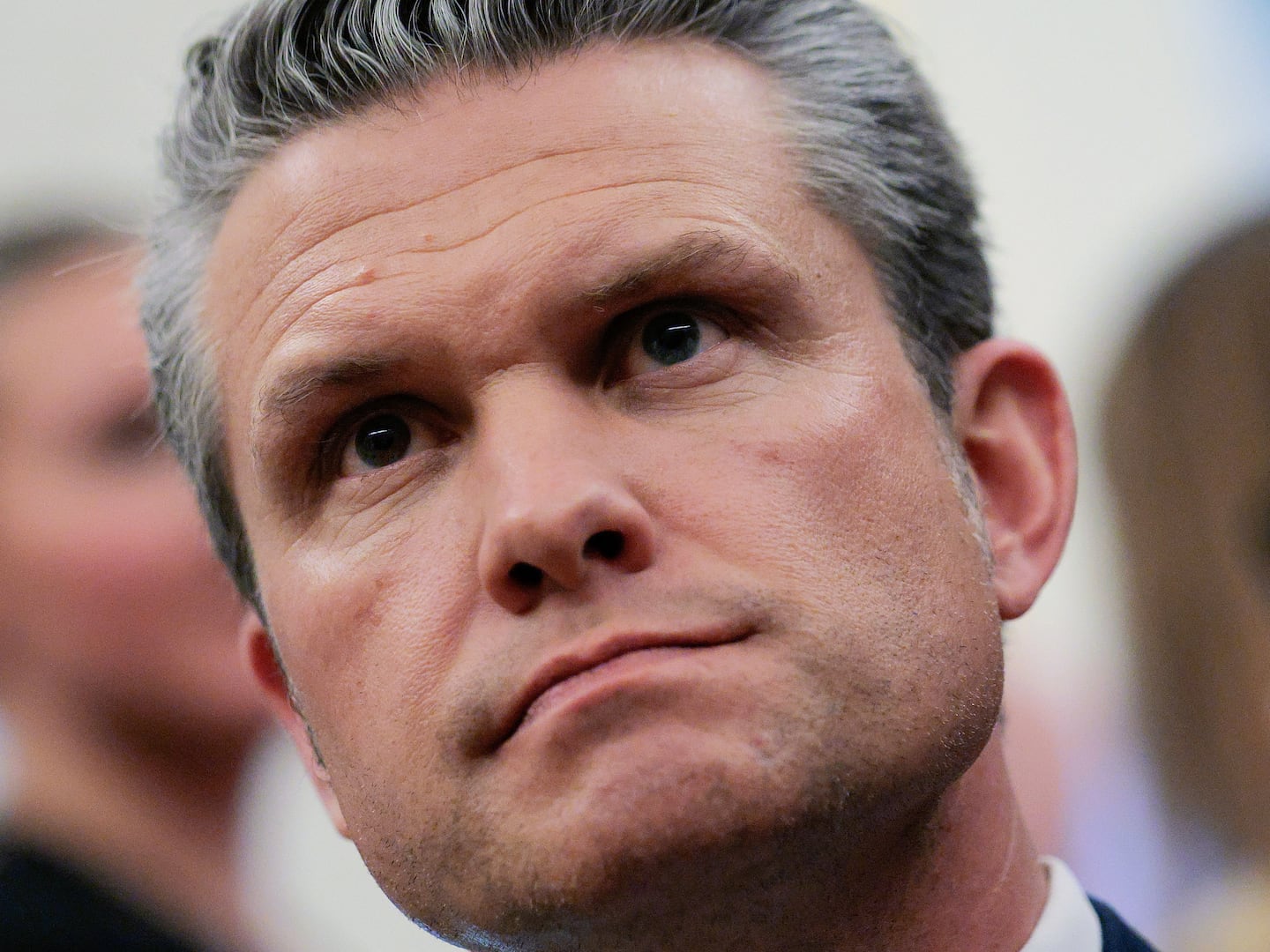Defense Secretary Pete Hegseth has appeared angry, unkempt, and tentative since March’s Signalgate scandal, Pentagon insiders told New York magazine.
Six sources close to Hegseth described a changed man after the defense secretary shared war plans on a Signal group chat that mistakenly included Jeffrey Goldberg, editor-in-chief of The Atlantic.
“He was more prone to anger and less likely to be clean-shaven in the morning,” New York‘s story reads. “He seemed reluctant to make decisions; scared of doing the wrong thing, paralyzed as he awaited orders from the White House.”
ADVERTISEMENT

Until the Signalgate scandal broke, Hegseth had been eager to execute his vision for the military. Afterward, the Pentagon chief has been less “creative,” the sources said. The department became a “mechanism for implementing executive orders.”
The New York profile reveals new details of the well-documented chaos, infighting, and scandals of Hegseth’s shaky tenure atop the Department of Defense.
Sources said that Joe Kasper, who was until late April Hegseth’s chief of staff, rankled other Pentagon staffers for his occasional refusal to wear socks—even in a meeting with the Japanese prime minister.
Kasper, who was ousted from his top role in April after a “knife-fight” battle with other Pentagon aides, defended his unconventional wardrobe decisions to the magazine.
“Rare for me to wear no socks!” he said. “It’s gotta be the right shoe, man. There are people in there wearing SpongeBob socks.”
Kasper, whom Hegseth tasked with investigating Pentagon leaks, also faced swirling rumors of his drug use, which he has vehemently denied.

As news reports citing inside sources continued to pile up, Kasper appeared “jittery,” like he was “bouncing off the walls,” the insiders said.
Kasper was locked in a power struggle with the other aides to win Hegseth’s ear. The battle reached its culmination when three top aides—Dan Caldwell, Colin Carroll, and Darin Selnick—were fired in the leak investigation.
Soon after, the three men jointly declared their ouster “unconscionable,” hinting that it wasn’t actually because of the leaks.

Carroll revealed to New York that it didn’t take long for him to form an opinion of Kasper. “I knew he was a moron within 30 seconds of meeting him,” Carroll said.
The six sources told New York that this was the prevailing opinion of Kasper inside the Pentagon—that he was ineffective, struggling to schedule meetings and refusing to arrive early or stay late.
While Carroll, Caldwell, and Selnick all complained to Hegseth about Kasper, the secretary refused to fire him. One source said this was because Hegseth “sees everything through the lens of media” and worried that ditching Kasper would be viewed as “an early L.”

At the same time, Hegseth was becoming more and more paranoid about the leaks. The situation was “consuming his whole life,” an insider told New York, “when he should have been focused on, you know, our national security.”
One by one, the trio of aides—Caldwell, then Selnick, then Carroll—were escorted out of the Pentagon in April.
Afterward, Carroll confronted Kasper about his firing over text, calling him a “f---ing coward,” according to New York.
“Hey man,” Kasper reportedly wrote back, “I previously delegated the investigation stuff and have nothing to do with decisions… I have zero insight into the decision space here.”
It wasn’t long before Kasper was gone as well.
Caldwell and Selnick, both longtime friends of Hegseth, told New York that they were “devastated” when he turned on them.
“He was a good friend of mine for 13 years,” Selnick said. “How could he so callously throw us under the bus like this?”
Asked for comment on New York‘s story, chief Pentagon spokesperson Sean Parnell pushed back.
“Claims of chaos at the Pentagon under Secretary Hegseth are false, and the American people are tired of this debunked narrative,” he told the Daily Beast. “When members of the legacy media lie, they disrespect the brave servicemembers and civilians who selflessly serve our country at the Department of Defense.”
The White House dismissed the story and asserted its unwavering commitment to Hegseth as defense secretary.
“While New York magazine is focused on propagating gossip, Secretary Hegseth is focused on restoring military readiness and lethality, which is why he has President Trump’s full support,” said spokesperson Anna Kelly.
Over the last week, Hegseth has helped carry out Trump’s push to deploy the National Guard and Marines against protesters in Los Angeles.
However, Hegseth remains without a chief of staff or a deputy chief of staff. This is reportedly because people keep turning top defense jobs down—and also because Hegseth has vetoed the White House’s candidates.








